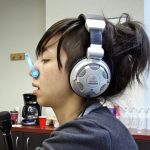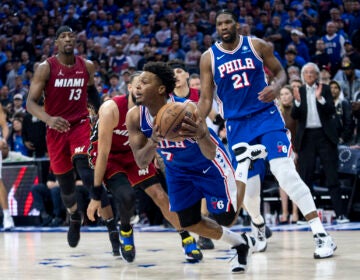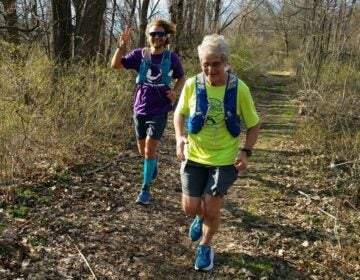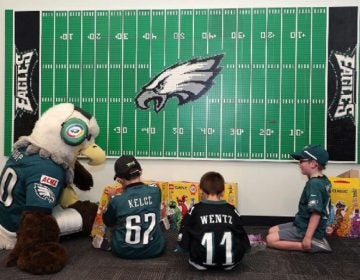For special needs adults, a league of their own is coming to Philadelphia
For young adults with autism, services can be hard to come by. But Alternative Baseball offers a chance for socializing and skills development.
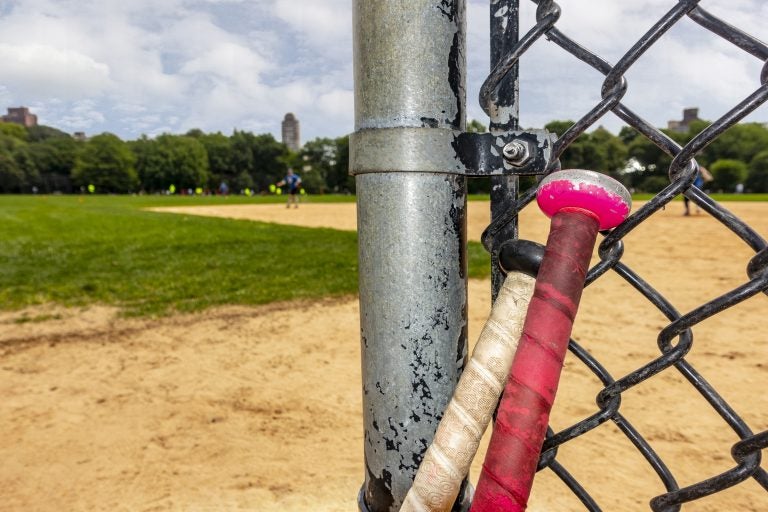
(Mirror-Images/Bigstock)
Georgia native Taylor Duncan, 23, has always loved baseball. But he says baseball — or at least, its coaches — didn’t always love him back.
“They basically deemed me as too much of an injury risk,” Duncan said of his first rejection at the age of 13. “And basically I was asked not to come back.”
Duncan is on the autism spectrum — a fact that he says has largely prevented him from participating in local recreational leagues.
“This coach — who was a special-ed teacher and a former physical-ed teacher — he wanted to win,” Duncan said. “When I told him I had autism, his whole attitude changed.”
After years of rejection, Duncan decided to take matters into his own hands. In 2016, he launched Alternative Baseball, a nonprofit organization aimed at people 15 and older who have autism or other special needs.
Since then, the group has seen exponential growth. It now boasts roughly 25 teams across the country — including its most recent one in Philadelphia.
Anyone interested in participating as a player or volunteer can sign up at the Alternative Baseball website.
Alternative Baseball teams play by major-league rules, and are open to people with autism and other special needs, including but not restricted to attention deficit hyperactivity disorder (ADHD), Down syndrome, and fetal alcohol spectrum disorder.
Philadelphia County has the second-highest number of individuals with autism in Pennsylvania, 4,617, according to the 2014 Pennsylvania Autism Census. The figure represents a more than 100% increase from the previous count in 2005. According to the census report, these figures only account for individuals receiving services associated with an official diagnosis of autism — meaning the actual number is most likely much higher.
“As is true in much of the country, the services/support network for people with autism, especially for adults with autism, is not nearly strong enough,” said Edward Brodkin, associate professor of psychiatry at the University of Pennsylvania’s Perelman School of Medicine.
While children and teens with autism are eligible for therapeutic and support services, such as behavioral, occupational, and speech therapy, that support largely evaporates once they graduate from high school — a phenomenon Brodkin calls “falling off the services cliff.”
“Most autistic adults would continue to benefit greatly from supports to help them with the transition to adulthood, and to help them in achieving their educational, occupational, and social goals,” Brodkin said. “Without services and supports in place, there is a risk of young adults on the spectrum becoming quite isolated and unsupported.”
It’s a problem Duncan has seen again and again among young adults with autism.
“The services plateau in a lot of areas, and in some areas there’s nothing at all,” he said. “There’s not much out there to help them continue that path toward independence as they get older.”
Autism is a developmental disorder that’s widely associated with problems with social interaction and communication, as well as repetitive behaviors, and, in some cases, sensory sensitivities. That can lead to problems gaining independence, finding a job, and establishing a social life.
“Many people on the spectrum are misunderstood and underestimated by neurotypical people,” said Brodkin, who added that the kind of bullying and exclusion that Duncan experienced isn’t uncommon for children and young people with autism. “These difficult experiences often make interacting with others more anxiety-provoking for people on the autism spectrum.”
Part of the problem, Brodkin and Duncan said, is widespread misconceptions about people with autism.
“One of the common ones is that all autistic people are completely socially withdrawn, and have no interest in interacting with others,” Brodkin said. “The reality is that many adolescents and adults on the autism spectrum are interested in interacting with others and making friends, but they may find it difficult to do so for a variety of reasons.”
Alternative Baseball aims to not only provide a social outlet but help build participants’ confidence and independence — all through baseball.
“We may focus on base stealing, we may focus on turning double plays, we may focus on strategical hitting,” Duncan said. “And we work a lot on team chemistry, as well for them to learn the social skills to be able to use in the outside world. Because it’s going to be important to have those social skills when they become employed.”
Duncan said he’s already seen benefit participation can bring.
“We’ve got some folks now wanting to go out and get jobs,” he said. “They’re wanting to get behind the wheel of a vehicle. They’re wanting to do these things because they know that they can do it. They were given the opportunity; they were given the support.”
WHYY is your source for fact-based, in-depth journalism and information. As a nonprofit organization, we rely on financial support from readers like you. Please give today.


